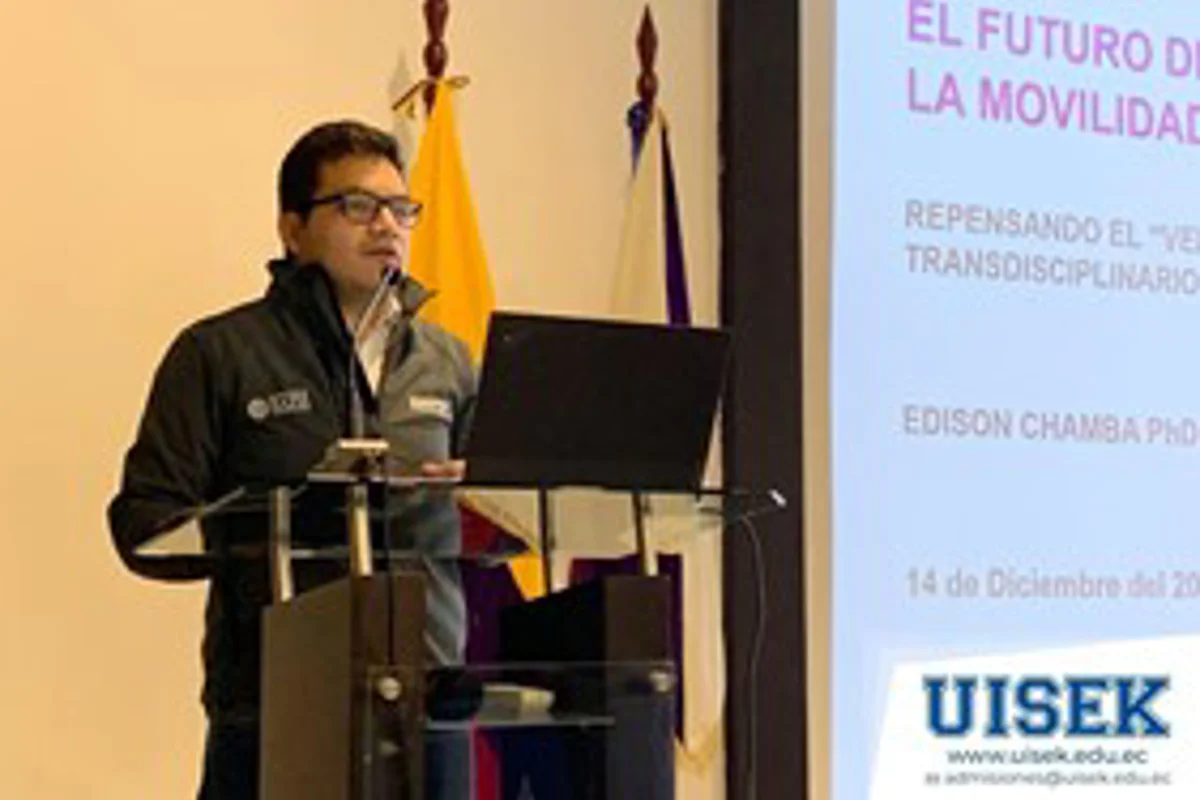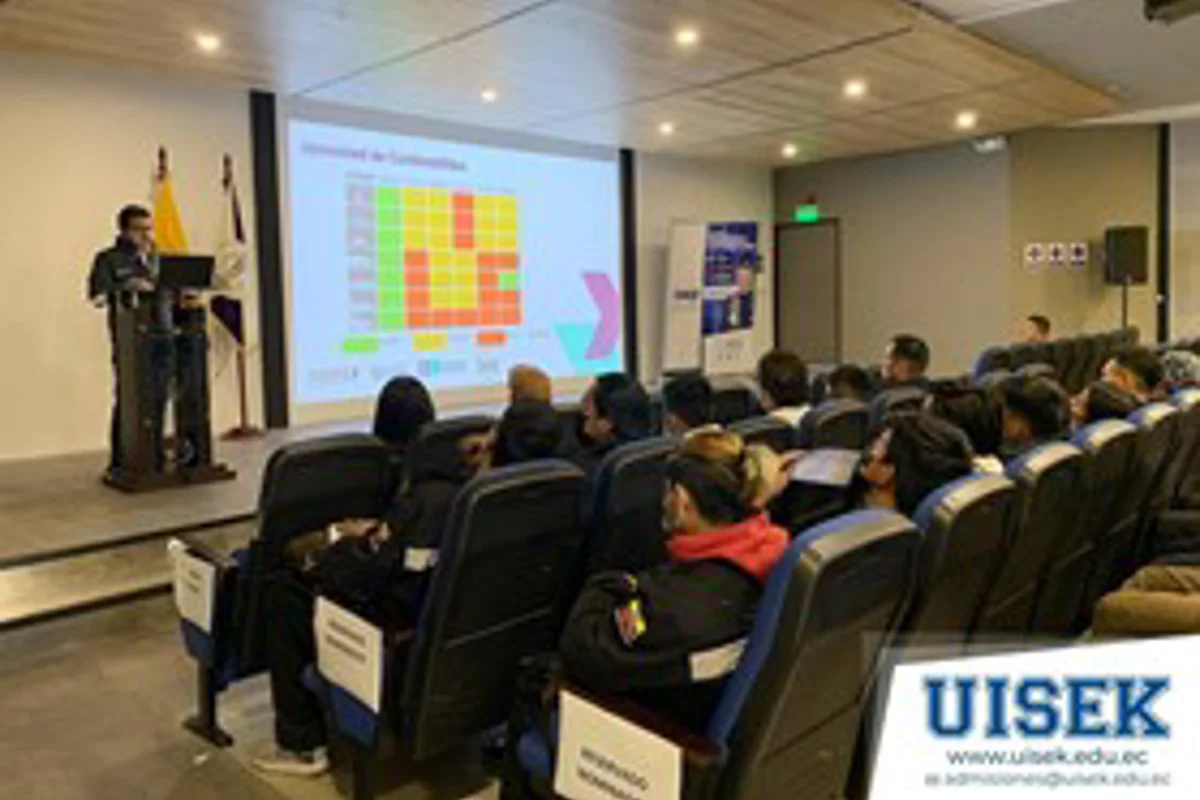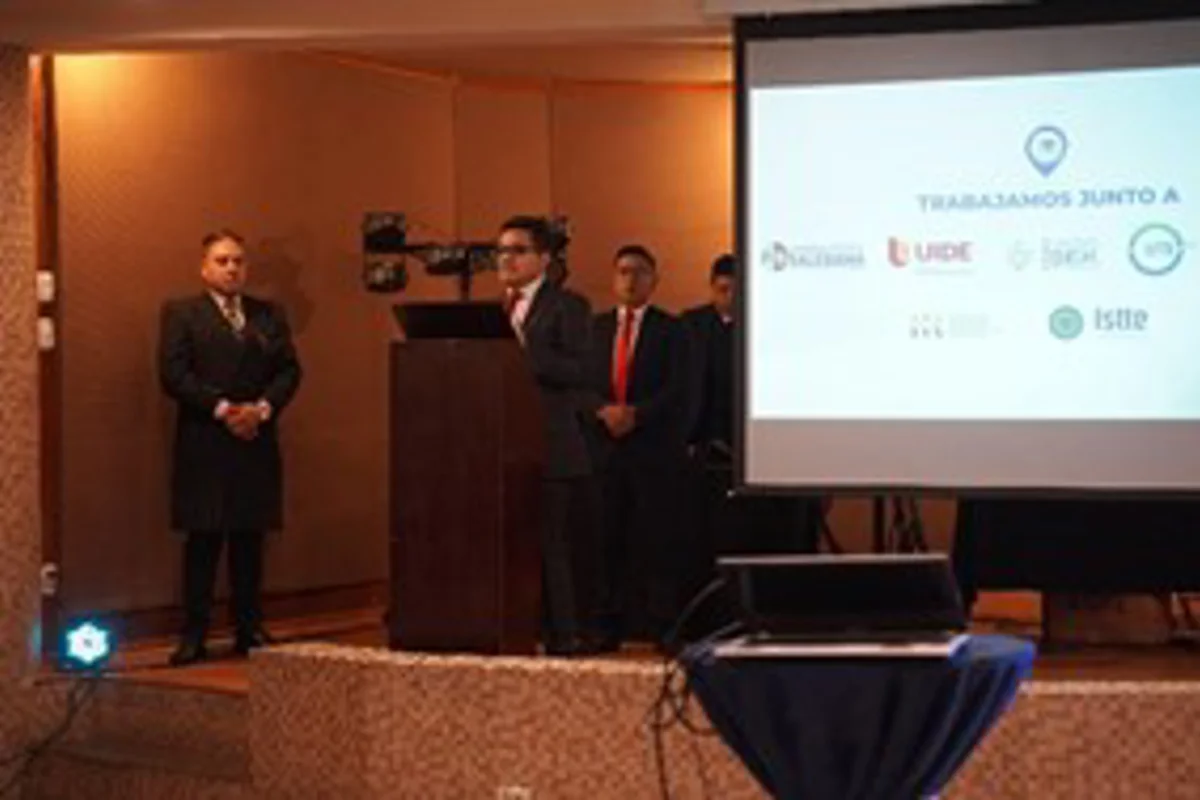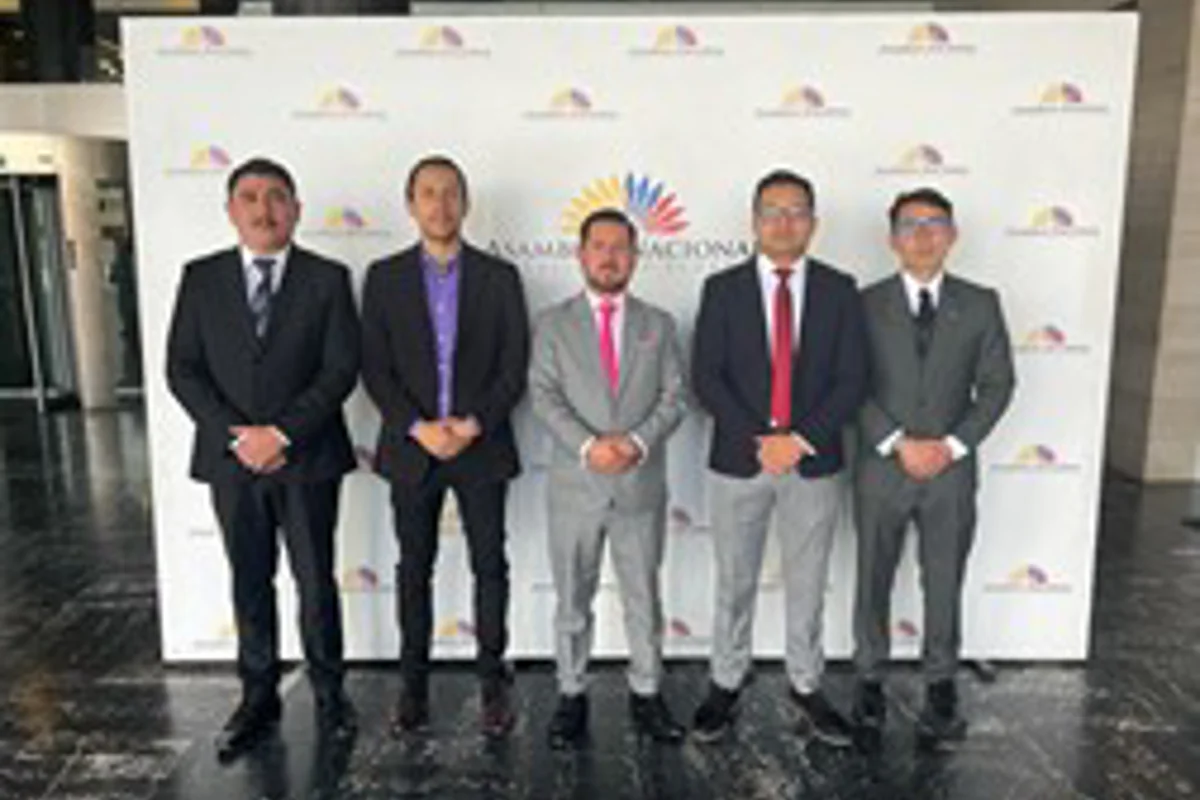The impact of AAPS in Ecuador
Posted by: Edison Chamba Ortiz
Transdisciplinary for wicked problems
In December 2022, I was invited by SEK University (Ecuador campus) to give a talk about “The future of Transport and Mobility”. This presentation aimed to encourage people to disrupt the current concept of private and public transport with a transdisciplinary approach and discuss alternative propulsion technologies such as hydrogen fuel cells. The topics covered in this talk included the definition of mobility problems such as traffic, emissions, safety and accessibility, low-carbon transport, and MaaS (mobility as a service). Most of my knowledge in these areas has been acquired during the MRes year in the AAPS CDT.
My participation in this event generated two contributions. First, from an academic perspective, I demonstrated the advantages of having transdisciplinary environments when facing wicked problems. Traditionally, the disciplines of engineering and social science do not have common scenarios where they can work together, however, the complexity of nowadays systems requires holistic analysis and the individual effort of a determined discipline seems to fail in generating an integrative and sustainable solution. Therefore, the audience of this event included students and professionals in fields such as mechanical and automotive engineering, environmental science, and psychology. As the second contribution, we discussed SEK University’s plan to enable more transdisciplinary spaces to the same degree of conferences and hackathons.


Advising companies and politicians
My time in Ecuador allowed me to have technical visits and attend networking events. As a member of the professional body of automotive engineers in Ecuador, I was invited to visit and advice on how to improve processes and adopt technology in a recycling plant that processes scrap metal from out-of-use vehicles, and in an Internal Combustion Engines (ICE) assembling plant. I prepared reports and some of my recommendations for these specific cases pointed out the importance of optimising reusing over recycling since some components of the outdated fleets can be stored as spare parts for working fleets. This would reduce maintenance costs. Moreover, for both cases, a key point stated in my consulting reports indicates the impact of the current and projected market share of Hybrid Electric Vehicles (HEV) and Electric Vehicles (EV) on these businesses, The companies’ readiness to process and recycle or reuse batteries of materials such as Lithium-ion (Li-ion), and Nickel Manganese cobalt (NMC) in a larger scale and to adapt their business units to not financially depend only on ICEs, will mean (among other factors) the continuity and potential success of these companies.
Some of the networking events I had the opportunity to attend gathered influential individuals within the automotive sector from industry, academia, and politics. It was exciting to discuss the future of transport and mobility in South America and compare it to what is happening in Europe. One of these conversations led to the establishment of cooperation between the professional body and some members of parliament pursuing the improvement of emissions regulations, new technology adoption and the electrification of transport on a national scale. The initial 2-month project included an expert revision of the current transport emissions regulations seeking to identify enablers to reduce carbon emissions considering local factors such as fuel composition and the standards of the available propulsion technologies.


Conclusion
Being part of the AAPS CDT has not only nourished me with state-of-the-art knowledge in the automotive and mobility sectors but also made me develop critical thinking by evaluating existing concepts and theories about mobility paradigms, which will shape the development of my career and all the activities I will be involved in, such as this enriching trip to Ecuador. The impact of AAPS is beyond borders.
What to know about Ecuador?
- Ecuador has the world’s first and second UNESCO World Heritage Sites. the Galápagos Islands and the city of Quito.
- Ecuador is named after the equator which runs through the country.
- Charles Darwin visited Ecuador’s Galápagos Islands in 1835 and largely based his theory of evolution on the discoveries he made there.
- The summit of Mount Chimborazo, Ecuador’s highest mountain, is the point on Earth closest to the sun.
- Ecuador became the first country to recognize the rights of nature in its constitution (2008).